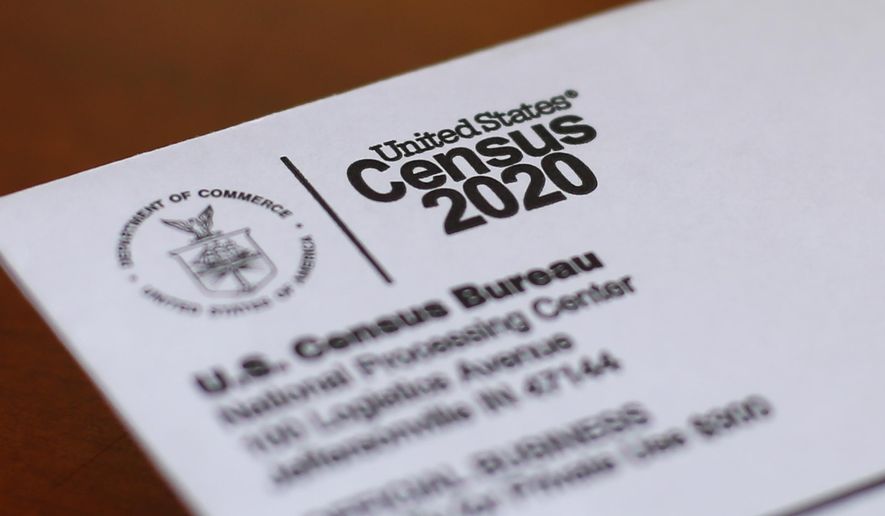The U.S. Census Bureau was able to claim it had reached 99.9% of households when the 2020 census ended two weeks ago because census takers were pressured to falsify data as the statistical agency cut corners and slashed standards, according to an amended lawsuit from advocacy groups and local governments.
In Baltimore, Southern California and the states of Massachusetts, North Carolina and Texas, some households were marked as completed after only one attempt to reach residents living there, according to the revised lawsuit filed by the National Urban League; the city of San Jose, California; and others.
Elsewhere, census takers were pressured by supervisors to close cases as quickly as possible, and they did this by guessing the number of people living in a household, claiming an address was too dangerous to visit or falsely saying residents of a household had refused to answer questions during door-knocking, said the lawsuit filed in federal court in San Jose.
“Instructions such as those identified above suggested to enumerators that they should falsify data to close cases quickly,” the lawsuit said.
The lawsuit argues the disregard for accuracy was done to end the count early so that census numbers could be processed while President Donald Trump was still in the White House, regardless of who wins the presidential race. That would allow the Trump administration to enforce a presidential order seeking to exclude people living in the U.S. illegally when congressional seats are divvied up among the states.
According to the lawsuit, the Census Bureau also relied heavily on methods other than directly interviewing households during its door-knocking phase in order to achieve its high completion rate. Those less accurate methods relied on administrative records like IRS returns, interviewing neighbors or landlords and just getting a head count rather than getting details about residents’ race, sex, age, Hispanic origin and relationship to each other, the lawsuit said.
In the race to finish field operations for the 2020 census, “Defendants cut many corners and made decisions that do not bear a reasonable relationship to the accomplishment of an actual enumeration,” the amended complaint said. “Such non-direct enumeration methods are less accurate and have a profound effect on immigrants and minorities - the hard-to-count populations.”
The revised lawsuit was filed late Tuesday, two weeks after the Supreme Court sided with the Trump administration and suspended an order from a district judge allowing the head count to continue through the end of the month. The coalition of local governments and advocacy groups had sued the Trump administration to keep the count from ending a month early and to extend the deadline for turning in apportionment numbers from Dec. 31 to the end of April 2021.
The Supreme Court decision allowed the Census Bureau to end field operations and start the process of crunching numbers ahead of the year-end deadline for turning in numbers used for divvying up congressional seats by state in a process called apportionment.
The Trump administration said in court papers last week that the courts should not interfere with efforts to meet the year-end deadline for turning in apportionment numbers now that the Supreme Court has ruled. Besides deciding how many congressional seats each state gets, in a process known as apportionment, the census helps determine the distribution of $1.5 trillion in federal spending annually.
The amended lawsuit argues that the Trump administration is pushing to finish data processing for the 2020 census by Dec. 31 so that the numbers used for apportionment are completed while Trump is still in office. That would allow the Commerce Department, which oversees the Census Bureau, to enforce a Trump directive seeking to exclude people living in the country illegally from the apportionment count, the lawsuit said.
Federal courts in New York and California have ruled Trump’s order unlawful and unconstitutional. Trump is appealing the New York case to the Supreme Court.
The coalition of local governments and advocacy groups says the Census Bureau doesn’t have enough time to crunch the numbers by Dec. 31, and the apportionment deadline should be moved to the end of next April.
___
Follow Mike Schneider on Twitter at https://twitter.com/MikeSchneiderAP




Please read our comment policy before commenting.